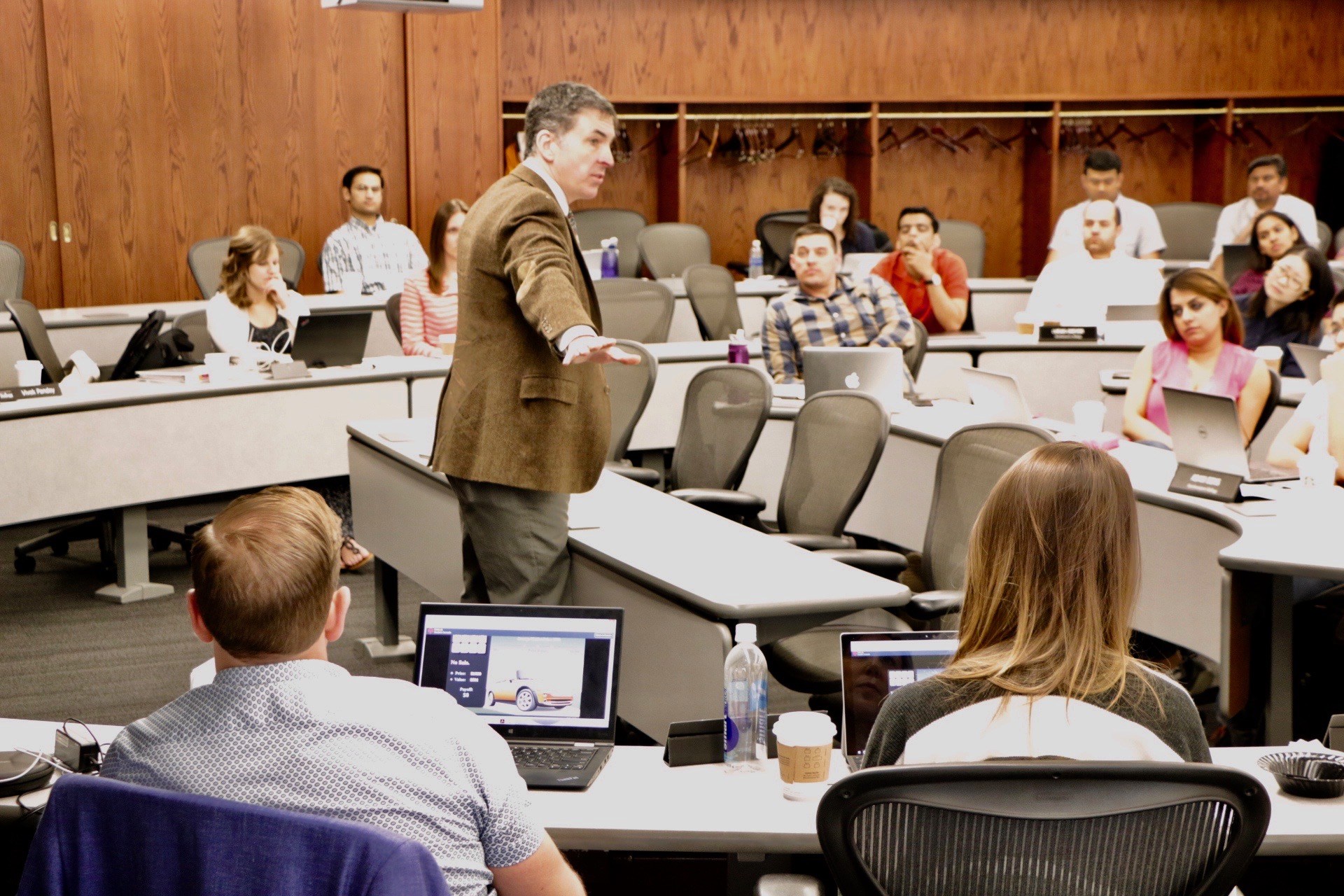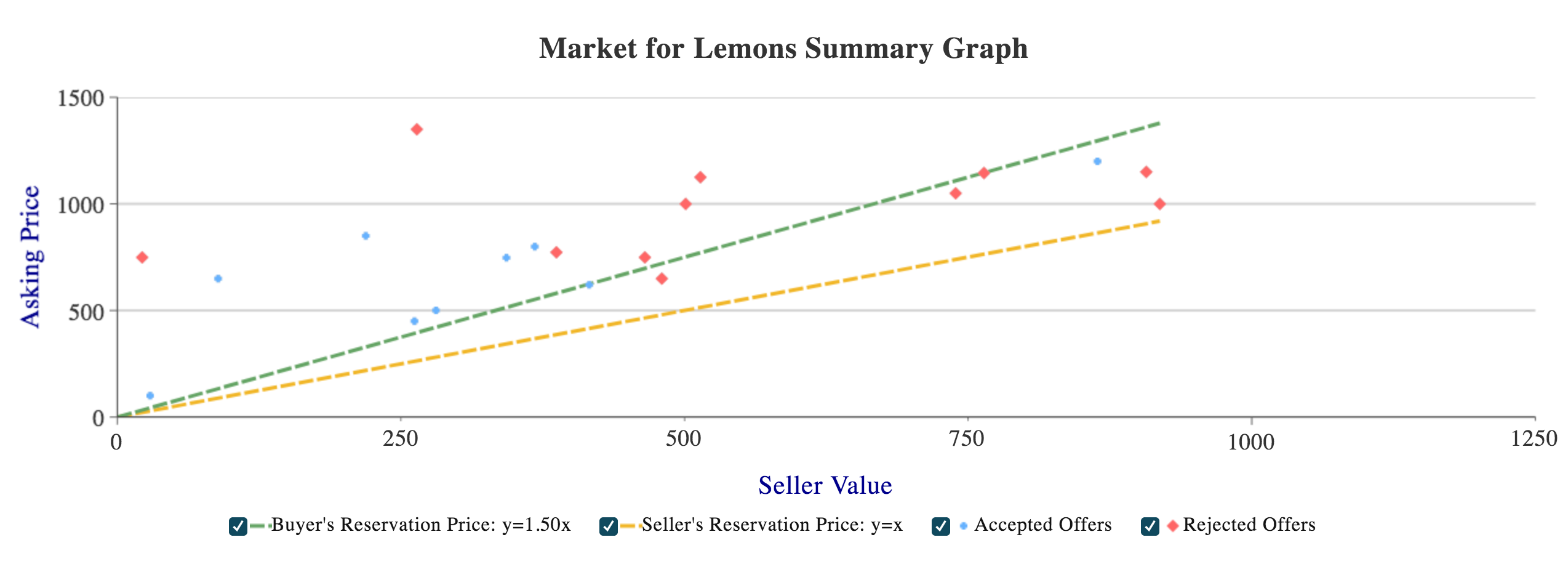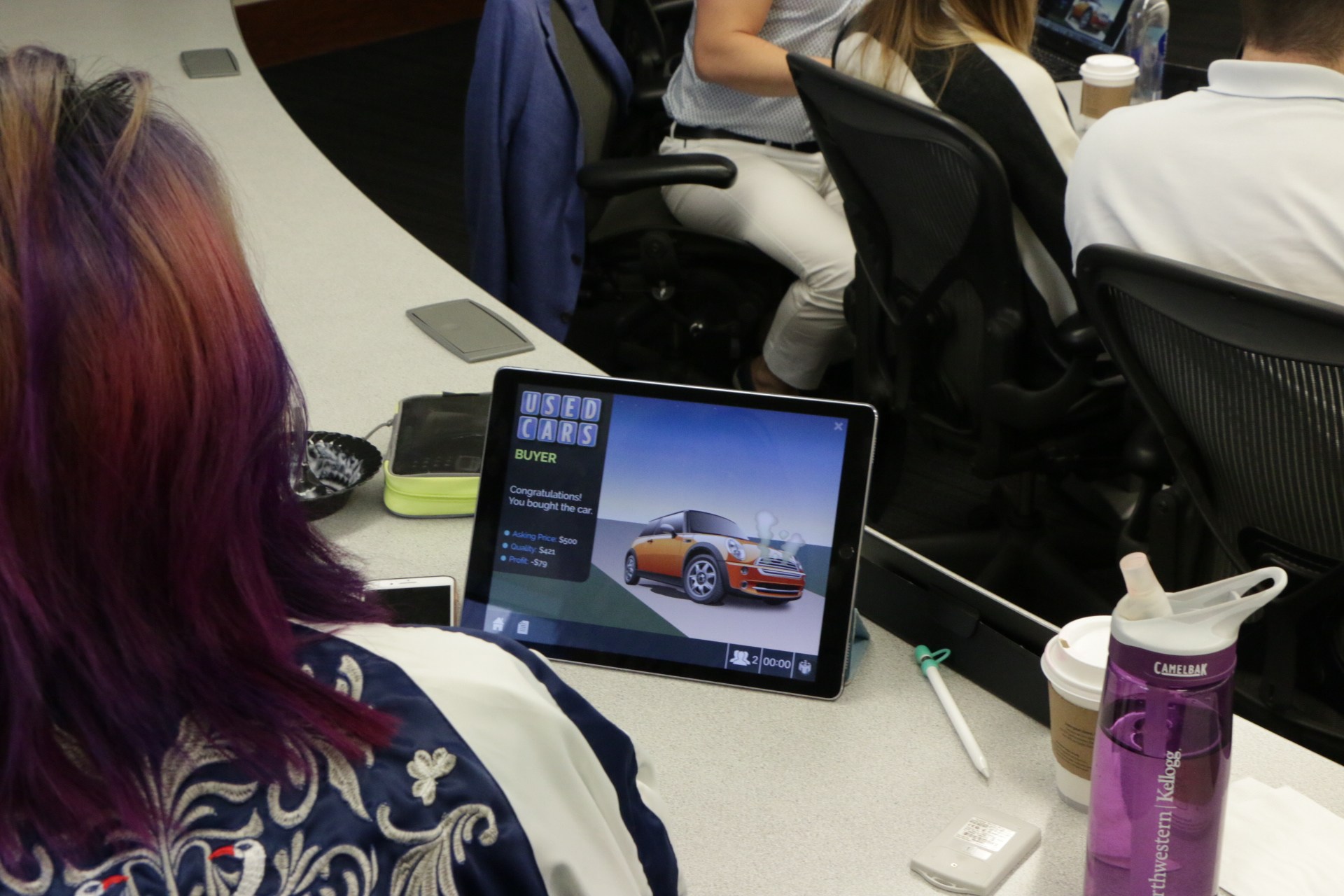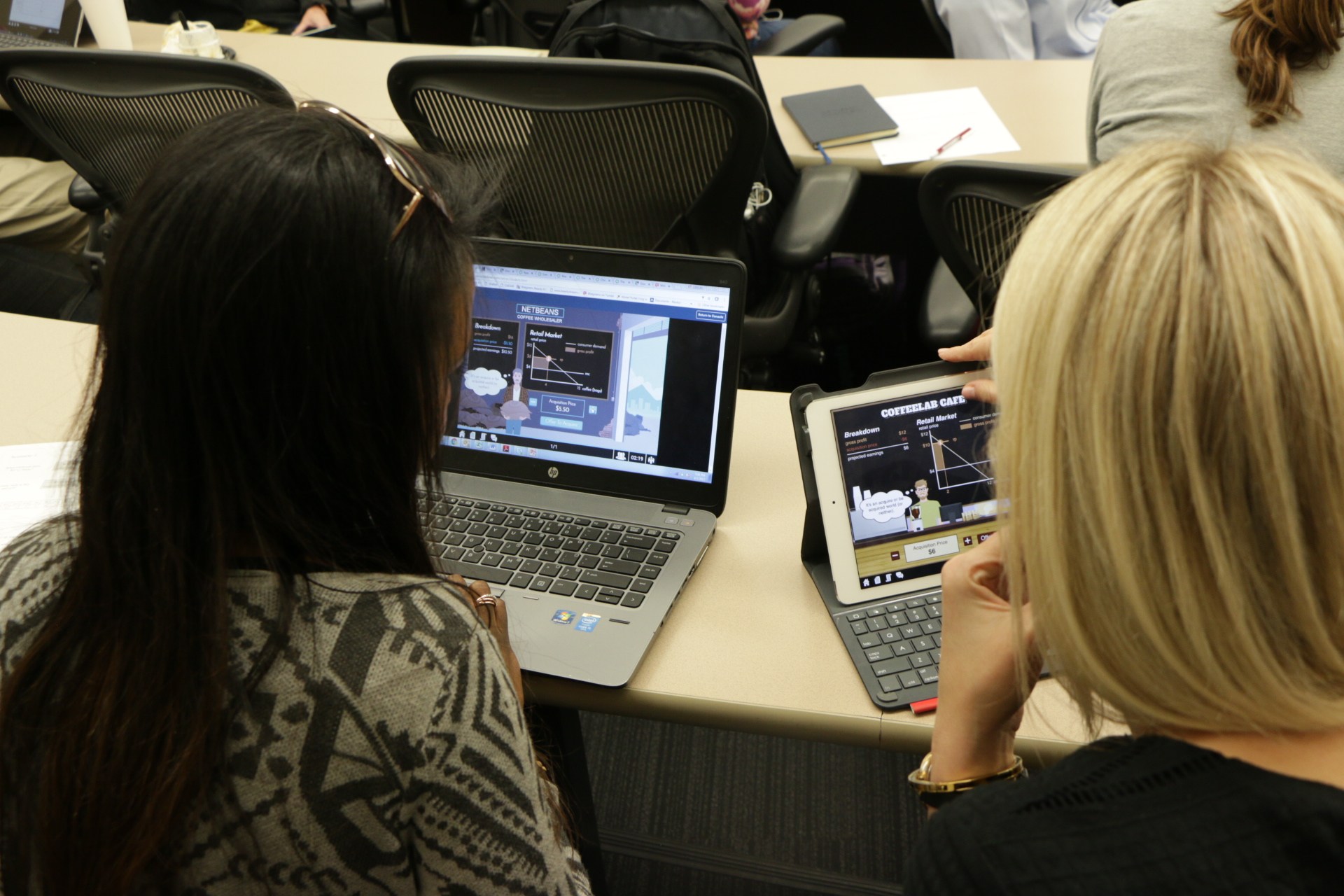“Welcome,” beckons Donald Dale, waving me into his classroom. “It’s so good to see you.”
We continue to exchange cheerful greetings. It’s been a year since the Kellogg School of Management at Northwestern University adopted MobLab. We’ve been working closely with Donald and other professors at Kellogg during the adoption to integrate MobLab and create new meaningful management games for MBA students.
As I sit down with a cup of Donald’s self-brewed coffee, I am swept with a wave of excitement—and caffeine. Today, I am a Kellogg Weekend MBA student. First, Microeconomic Analysis followed by a Strategy and Organization course in the afternoon.
 For a Saturday morning at 9:00 a.m., the feeling in the room is electric. This is the last class of the quarter. For 10 weeks these students have committed to learning Microeconomic Analysis, many traveling from different states to attend.
For a Saturday morning at 9:00 a.m., the feeling in the room is electric. This is the last class of the quarter. For 10 weeks these students have committed to learning Microeconomic Analysis, many traveling from different states to attend.
Today’s lesson plan includes asymmetric information. To kick off the topic, we begin with the MobLab Market for Lemons Game after a brief discussion of the instructions and clue that the buyer’s valuation is 150% of the seller valuation. Boom! A quick game created an asymmetric market and a great discussion.

A market suffering from adverse selection will see purchases (blue circles) clustered on the left-hand side of the graph (i.e., low quality cars). You will also see the right-hand side of the graph (i.e., high-value cars) populated with rejected offers (red diamonds) as buyers learn to fear that high-priced cars are not in fact high-quality cars.
The area between the two reference lines represents the possibility for gains from trade. Only two sellers, out of a class of 40 offers were accepted to split the gains from trade.

After lunch, I join George Georgiadis in his Strategy and Organization class. Thanks to the help of George, Michael Powell & Niko Matouschek, MobLab collaborated with Kellogg to create a MobLab Double Marginalization Game. Previously, Kellogg ran this experiment using paper and pencil. Now with MobLab, students can quickly explore two potential solutions to this double marginalization problem: acquisition and franchise fees. One of the benefits of adopting MobLab economics games for MBA students is our customer service and excellent support. A large thank you to the Northwestern Digital Learning Team for making this vision possible. We look forward to working together to provide a smooth transition and beneficial learning experience for all of our partners. Schedule a meeting with us so we can help your class!
One of the benefits of adopting MobLab economics games for MBA students is our customer service and excellent support. A large thank you to the Northwestern Digital Learning Team for making this vision possible. We look forward to working together to provide a smooth transition and beneficial learning experience for all of our partners. Schedule a meeting with us so we can help your class!

